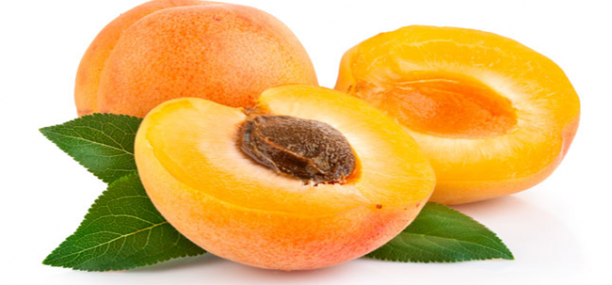Nutrition facts and Nutritional information of Apricots
Where apricots grow
An apricot (Prunus armeniaca, абрикос, المشمش) is a fruit of the genus Prunus (a relative to nectarine, plum, peach, almonds and cherry) that grow on a group of trees of the species P. armeniaca, P. brigantina, P. mume, P. mandshurica, and P. sibirica.
The apricot tree is a type of fruit tree classified in the same plant family along with nectarine, plum, peach, almond and cherry.
Why apricots are so popular globally
Because of its nutritional profile, apricots are very popular globally, as the fruit benefits of apricot include its ability to treat constipation, indigestion, inflammations, earache, fevers, skin diseases, various infections, cancer and anemia.
What are the benefits of apricots?
Are apricots good for your heart
Apricots are highly saturated in fibers and beta-carotene that helps effectively in the prevention of cardiovascular diseases.
Why do apricots make you poop
Apricots are also relatively high in insoluble fiber that stimulates the bowel movements (laxative effect of apricots), and accelerates the detoxification of waste products and toxins from the body.
Why apricots help in the prevention of macular degeneration
Apricots are excellent natural sources of potassium, ascorbic acid (vitamin C), and vitamin A that helps in the prevention of macular degeneration.
Apricots’ Protection Against Free Radical Damage
Apricots also contain enormous amounts of flavonoid antioxidants zeaxanthin, lutein, and cryptoxanthin that possess antioxidant, and anti-inflammatory qualities.
Do apricots have iron?
Dried apricots are an excellent source of nonheme iron.
What are dried apricots good for?
Recommendations
Eat dried apricots, as this increases the density of their nutritional values. Dried apricots are highly saturated in minerals such as calcium, phosphorus, and iron as well as they contain an increased amount of calories and thus can provide more energy upon eating.
Best way to Enjoy apricots
Intake
Eat fresh raw apricots as a snack, or add them to a fruit salad, ice cream, cocktail or smoothie. For a decadent dessert on a special occasion, combine sliced fresh apricots, mango and peaches in a cobbler.
If you are moody, try preparing an apricot glaze for poultry.
Add chopped dried apricots (available globe wide, and in all seasons), to cereal, granola, or simply enjoy a handful of dried apricots with a sip of yogurt while you are at work, for a healthy snack on the go.
Verified by: Dr.Diab (June 28, 2017)
Citation: Dr.Diab. (June 28, 2017). Nutrition facts and Nutritional information of Apricots. Medcoi Journal of Medicine, 4(2). urn:medcoi:article18253.














There are no comments yet
Or use one of these social networks